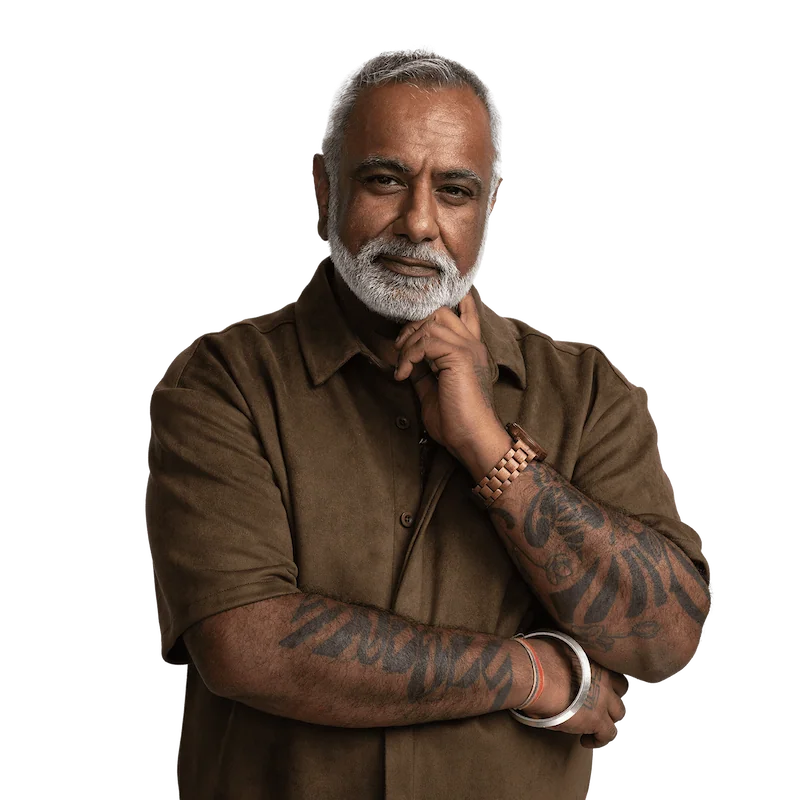Just found out you're HIV positive?
Take a breath. You’re going to be okay.
Getting an HIV diagnosis can feel like a lot. You might be shocked, scared, angry, numb—or none of the above. However you’re feeling, you’re not alone. And you’re not without options. With the right medication and support, people living with HIV can live long, healthy lives—and can’t pass it on through sex.
We’re here to help you take the next steps.
What happens next?
You can start treatment as soon as you’re ready. It’s free on the NHS and usually just one pill a day. The medication is called antiretroviral therapy (ART). It stops the virus from multiplying and protects your immune system.
Most people reach an “undetectable” viral load within a few months. That means the virus is so low in your blood it can’t be passed on through sex. That’s what we mean by U=U: Undetectable = Untransmittable.
Will I feel side effects?
Modern HIV meds are safe. Some people feel a bit off for a few days when they start, but side effects are usually mild and temporary. If something doesn’t feel right, your clinic can help you switch to a different combination.




Is it safe to have sex?
Yes—but timing matters. In the first few weeks of treatment, your viral load is still high. Use condoms until your clinic confirms your viral load is undetectable. After that, you can’t pass HIV on through sex. Still, condoms protect against other STIs—so they’re always a good idea.
Talk to people who get it
You don’t have to figure this out on your own. There are peer support groups across London where you can talk to people who’ve been where you are. Some are open to everyone. Others are for specific communities, so you can connect with people who share your experiences.


Frequently Asked Questions
1. Can I still have sex?
Yes. Once your viral load is undetectable, you can’t pass HIV on through sex. Until then, use condoms to protect your partners. And remember, condoms also protect against other STIs so they’re always a good idea even when you’ve achieved undetectable status.
2. Can I have children?
Yes. With the right care and treatment, people living with HIV can have children without passing on the virus. Talk to your doctor or sexual health clinic.
3. Do I have to tell people I'm HIV positive?
You don’t have to tell most people. But there are some things to consider.
Sexual partners
Your HIV status is private personal information and there is no legal requirement to tell a sexual partner you’re living with HIV.
It’s your choice whether you tell them or not. However, in England and Wales there’s a risk of being prosecuted for reckless transmission of HIV if:
- you had sex with someone who didn’t know you had HIV
- you knew you had HIV at that time
- you understood how HIV is transmitted
- you had sex without a condom
- and you transmitted HIV to that person
The law in Scotland is largely the same, except that a case can also be brought if transmission hasn’t taken place but someone has been put at risk of transmission without their consent or knowledge.
Employment
With some exceptions that are specific to a person’s employment, it is your decision whether you tell someone that you have HIV. In most jobs, you’re not obliged to share your status with your employer: it is personal private data, protected by law.
There are some exceptions to this, such as if you work in the army or in some healthcare settings.
It is unlawful for an employer to ask you about a disability or health condition before offering you a job. It is also unlawful to retract an employment offer on the basis of your HIV status.
If you’re unsure, your clinic or a support service can help you understand your rights and responsibilities.
4. What does this mean for my health long-term?
With treatment, people living with HIV can live just as long as anyone else. You’ll have regular check-ups to monitor your health and make sure your treatment is working.
5. Can I travel?
Yes, but some countries have restrictions. Check before you go. Your clinic or support organisation can help with travel advice.
6. What if I miss a dose?
Don’t panic. Take it as soon as you remember. If you’re missing doses often, talk to your clinic—they can help you find a routine that works for you.
7. Trust us - you've got this.
There’s no shame in living with HIV. You’re still you—and you’re not alone. With the right treatment and support, you can live well, love fully, and plan for a wonderful future.
We have more information here about living with HIV.